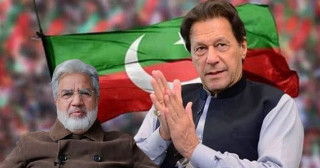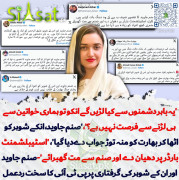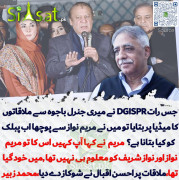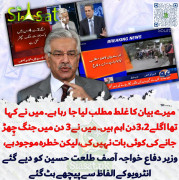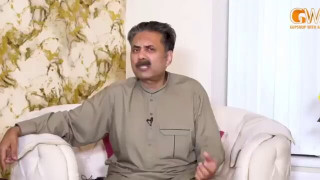Machar
Chief Minister (5k+ posts)

Adiah Afraz
Sunday, March 03, 2013
Lets leave politics aside for a while and lets give credit where credit is due.
The Pakistan Tehreek-e-Insaf successfully holds its intra-party elections. Around 70 million party members vote to elect 80 thousand office bearers, and if we dont take a moment to reflect on the significance of this event, then trust me, we are doing a disservice to ourselves as a nation.
First of all, congratulations PTI. In a country where dynastic politics is the rule of the game and where political parties are run as fiefdoms of the selected few, the PTI has empowered its ordinary worker and given a voice to the silent voter by conducting open-for-all party elections, and initiating a tradition of true grass-roots democracy.
Unprecedented in the history of Indo-Pak politics, these elections provide us with a rare opportunity to be proud of ourselves. Pakistan has just entered history-in-the-making mode, and we all deserve to feel the moment regardless of our political affiliations.
Hence when I say I am proud, I do not speak as a star-struck Imran Khan fan, or as a diehard PTI supporter. I say this as a Pakistani whose elected government has just completed five years of its tenure and who is now anxiously waiting to see how the future of democracy unfolds in the forth coming elections.
So in this scenario when an emerging political party, with no parliamentary representation and yet carrying the burden of half the nations hopes to bring about change, takes the risk of holding intra-party elections weeks before the countrys general elections and that too amidst strong scepticism and opposition from within and without then the successful completion of these very elections becomes all the more significant. Significant, because they prove a few basic things beyond a reasonable doubt.
First, that democracy with all its alleged drawbacks, shortcomings and inadequacies, is still doable in Pakistan. Second, that the apologists for nepotism and class hierarchies in our feudal political culture now seriously need to re-think their paradigms.
And third, that despite all the personality related criticism levied against him, Imran Khans sincerity of intent and single-minded resolve to stand firm on his ground, are definitely formidable forces for his opponents to reckon with.
Famous biographer Christopher Sandford has extensively catalogued these very personality traits of Imran Khan in his 2009 biography Imran Khan: The cricketer, the celebrity, the politician. Phrases such as benevolently dictatorial, fiercely patriotic, burning with ambition, absolutely dedicated, mildly obsessed, strong-willed, single-minded and earnest of purpose, pop out from every second page of the book.
Gibes only serve to spur him on, says Sandford at one point, and also quotes Khan to be a joyless, single-minded leader, who is an intense strategiser and who expects everyone to live up to his own high standards.
The Pakistani nation itself is witness to the living examples of Khans achievements for Pakistan. How he changed the way Pakistani cricket was perceived around the world to how he established Shaukat Khanum Cancer hospital, the most credible charity in Pakistan. His sincerity of intent has been proven time and again.
The only thing that remained to be seen in the current political transition period was this sincerity of intent going beyond the domains of cricket captaincy and international philanthropy, and reflecting itself in successful implementation of political intent.
Sceptics had been especially apprehensive about the danger of drawing parallels between cricket, philanthropy and politics for fear of taking this analogy too far.
But the fact remains that with a similar sincerity of intent much lesser men than Imran Khan have done wonders for their people. Nitish Kumars Bihar model is just one example in this regard. The PTIs present intra-party elections point towards an expected dissipation of the very scepticism that Imran Khans sincerity of intent is subjected to.
Despite occasional disruptions and allegations of hooliganism highlighted on TV channels, there has not been a single media commentator who hasnt applauded the spirit behind these elections and commended Imran Khan and his newly-launched team of suave media spokespersons on achieving this milestone.
Some have even declared these elections a bigger achievement than any of the feats Khan has achieved in the past, and have heralded them as a true precursor of change.
And why not? When peasants beat businessmen and ordinary workers get elected for important party positions; when workers become leaders and leaders become workers; and above all when men, women and children come out of their homes to stand in queues for hours to elect their party officials; then it all points in one direction. That change is doable.
That Imran Khans resolve to give Pakistan strong institutions based on solid groundwork is doable. That bringing people out of their comfort zones to change their lot, is doable.
There is hope that Pakistanis from all social and economic backgrounds do have the willingness and the capacity to accelerate the process of political evolution.
From a wider perspective, this election should not be seen as an end in itself, or an isolated victory of an individual political party. In fact, during times when the question is that of saving the very existence of the country, this milestone should be seen more as a real-life means to an end.
The end that democratic norms can be initiated from within political parties, that dynastic politics can be discarded for a more dynamic model of democracy, and that the slogan of change is no more just a slogan, but a reality. That change, in fact, has already begun.
All that remains now is for us to witness how this change transforms our country right in front of our eyes and soon.
The writer is a teaching fellow at the Department of Humanities and Social Sciences, LUMS.
Email: adiahafraz@ gmail.com
http://www.thenews.com.pk/Todays-News-9-163137-Change-begins



